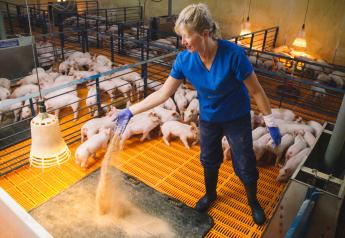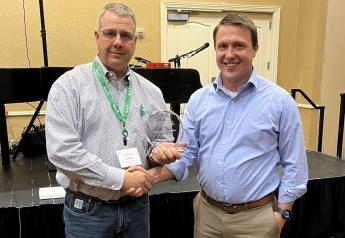Connect With Farmers In-Person On Mental Health

When it comes to mental health information, a new study shows farmers want to receive information face-to-face from their innermost circle. Limited access to mental health care in rural areas often makes it challenging for farmers coping with stress and uncertainty due to economic and environmental conditions.
“We know it’s a problem in the population, and we know access to mental health care is not always available in rural areas,” said Josie Rudolphi, assistant professor of agricultural and biological engineering at the University of Illinois, in a university release.
In a previous study she conducted, she discovered that up to 60% of young farmers and ranchers reported at least mild symptoms of depression and 70% reported at least mild symptoms of anxiety.
Although public health programs can help, Rudolphi set out to find the best ways to reach farm populations regarding mental health care. Working with the Marshfield Clinic Research Institute in central Wisconsin, she helped deliver a program called Mental Health First Aid (MHFA) to local communities.
MHFA trains people to provide assistance to those suffering from mental health issues. The program aims to reduce stigma, while offering a five-step action plan to assess a problem, provide recommendations and de-escalate a crisis situation.
Who do farmers want to hear from?
Rudolphi knew from a previous study that farmers want to receive agricultural health and safety information from people who have a really good understanding of risk, such as bankers, Extension personnel, insurance agents and firefighters.
But she discovered those results might not transfer to mental health information.
Mental health safety is totally different, she said. It’s still highly stigmatized in rural communities, and she didn’t want to assume that people wanted to hear about tractor safety from the same people they wanted to hear about stress management and mental health from.
So, Rudolphi and her team conducted a survey of 300 farmers in three counties in central Wisconsin, resulting in 159 responses – a 53% response rate. The median age of respondents was 56, and they were predominantly male (90%) and white (93%), comparable to the general demographics for farmers in the U.S.
From the survey, they found that respondents were most receptive to receiving mental health information from licensed medical providers, as well as from spouses, family members and friends. Rudolphi noted that they were least receptive to receiving the information from attorneys, bankers and commodity groups.
Farmers want information face-to-face, and they want it from their innermost circle, the results showed.
“Think about how they purchase equipment and inputs – it is still very personal and they participate in field days and trade shows,” Rudolphi said. “As such, it is not surprising this is how they prefer their mental health information – face-to-face as well.”
It’s important to equip those people with as much information as possible to deal with the stress and subsequent mental health issues of farmers, she said.
How do farmers want to hear it?
The survey also revealed that respondents preferred to receive information from newspapers and magazines, as well as face-to-face communication. Respondents were least likely to want information from social media, the internet and phone support lines.
Rudolphi notes that farmers had very little interest in receiving mental health information online, which includes webinars and websites.
“This is especially important because although the internet is highly efficient at disseminating information, it may not be an effective mode of communication when attempting to reach farmers about mental health,” she said. “One limitation to our study, however, is that we did not assess farmers’ access to the internet and, therefore. we cannot be sure whether their disinterest is a function of connectivity or acceptability of the technology.”
She was surprised they were not interested in receiving mental health information on social media. However, she believes it speaks to this population. Not only are they a close group, but they also find more value in face-to-face contact.
Boost your metal health knowledge base.
A number of trainings are available to increase friends and family members’ knowledge and self-confidence in discussing mental health with farmers, Rudolphi says. A few examples include Mental Health First Aid and Question Persuade Refer.
“I think we will see farm-specific trainings become more available as they are developed. As an Extension specialist, I have made stress management and mental health a priority, and we will be hosting various trainings and workshops throughout the spring,” she said.
The article, “Who and How: Exploring the Preferred Senders and Channels of Mental Health Information for Wisconsin Farmers,” was published in the International Journal of Environmental Research and Public Health. [doi.org/10.3390/ijerph16203836]
Related articles:







